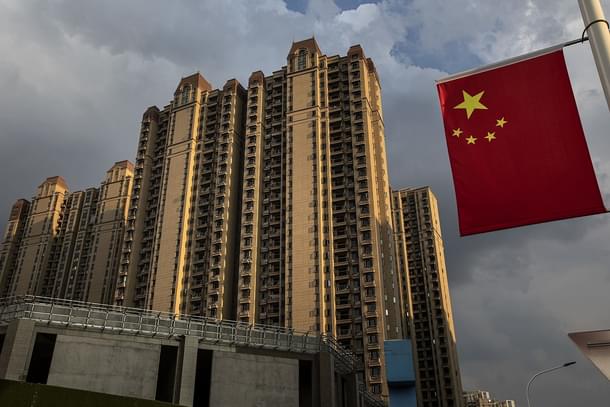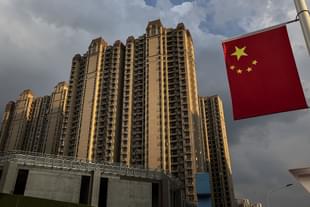World
China's Real Estate Troubles Are Now Beginning To Haunt Its Finance Sector
Swarajya Staff
Aug 18, 2023, 11:30 AM | Updated 11:29 AM IST
Save & read from anywhere!
Bookmark stories for easy access on any device or the Swarajya app.


Zhongrong, a significant player in the $2.9 trillion shadow financing market, partially owned by investment group Zhongzhi, has raised doubts about its financial health, contributing to the growing unease about China's economy post-Covid-19.
Two publicly traded companies recently reported that Zhongrong had defaulted on repayment of trust products, which offer higher returns compared to traditional banks.
This comes after weeks of speculation about missed payments to retail investors by Zhongzhi's wealth management businesses, which channel billions of renminbi (RMB) into savings products.
Since shadow financing often flows into China's property sector, concerns about Zhongzhi's difficulties have amplified fears of spillover effects from the slowdown in the country's once-thriving real estate industry, which has already led numerous developers to default.
China's trust industry, known for attracting capital from both companies and individuals at higher rates than banks, is perceived to be overly exposed to real estate.
Data from the China Trustee Association revealed that out of RMB 23 trillion in trust products, around RMB 1.1 trillion was invested in the property sector.
However, these figures could be much larger as trust funds often navigate multiple intermediaries before reaching developers, with no available data on trust lending to local government financing vehicles.
Against the backdrop of missed bond payments from Country Garden, China's largest privately owned homebuilder, JPMorgan analysts have warned about a potential vicious cycle in real estate financing, which could intensify liquidity stress for developers and non-bank creditors.
They further pointed out that Zhongrong, with RMB 629 billion in total assets, of which RMB 67 billion is invested in the property sector, is exposed to risk, particularly given the absence of data on real estate debtors.
Gavekal's Zhang highlighted that while regulators have taken measures to curtail shadow banking, missed payments at Zhongzhi signal that debt strains from property developers and local government financing vehicles are spreading across China's economy.
Zhongzhi, founded in 1995 by entrepreneur Xie Zhikun, has been at the center of missed payment concerns.
Despite Zhongzhi's issues and Zhongrong's statement about forged documents, neither company has responded to requests for comments.
Investor backlash is evident, with retail investors seeking resolutions at Zhongzhi's headquarters and lodging formal complaints with authorities.
As the situation unfolds, concerns are growing that if the market slump persists, problems in the real estate sector could cascade to other areas, including commercial banks. This has led to the analogy that Zhongzhi might be seen as the proverbial "canary in the coal mine."





